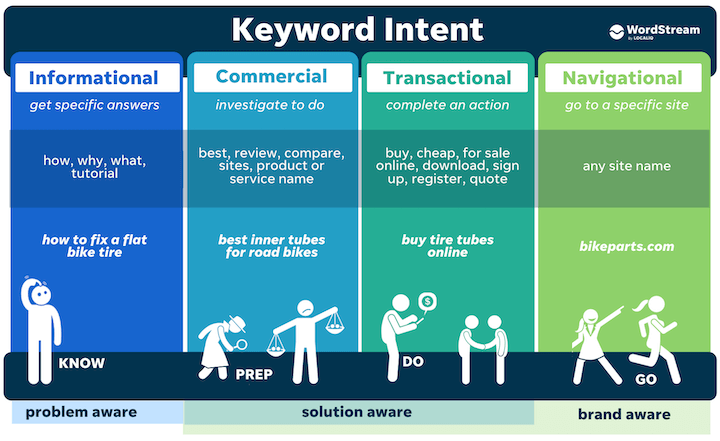Unlock the secrets of search terms and learn how to boost your online presence with targeted optimization strategies today!

Image courtesy of via DALL-E 3
Table of Contents
Introduction to Search Terms
When you search for something on the internet, have you ever thought about the words you type into the search bar? Those words are what we call search terms. Search terms are the key phrases or words that people use to find information online. They are like magic spells that help search engines like Google, Yahoo, or Bing to discover the answers to our questions.
What are Search Terms?
Search terms are the secret codes we use when we are looking for something online. Imagine you are trying to find a video of cute puppies playing. You would type in something like “cute puppies playing” into the search bar. In this case, “cute puppies playing” are your search terms. By entering these words, you are telling the search engine what you are looking for.
Why Search Terms Matter
Now, imagine if you typed in “big dogs running” instead of “cute puppies playing.” You might get videos of big dogs running instead of those cute puppies! Using the right search terms is important because they help us find the exact information we need quickly. So, by choosing our search terms wisely, we can get the best results and have an easier time finding what we are looking for on the internet.
Types of Search Terms
When it comes to searching for information online, there are two main types of search terms that people use: broad keywords and long-tail keywords. Understanding the difference between these two types can help you find the information you’re looking for more effectively.
Broad Keywords
Broad keywords are short and general terms that describe a topic broadly. For example, if you’re looking for information about dogs, “dogs” would be considered a broad keyword. These keywords are useful when you want to gather general information about a topic or when you’re not entirely sure what you’re looking for.
Long-tail Keywords
On the other hand, long-tail keywords are more specific phrases that target a particular niche. If you’re interested in finding information about poodles as a specific type of dog, “miniature poodles for sale” would be a long-tail keyword. Long-tail keywords are helpful when you have a specific question or need specific information.
By understanding the differences between broad keywords and long-tail keywords, you can tailor your search terms to better match the information you’re seeking online.
How to Identify Search Terms
When you want to find information online, the first step is to think about the words or phrases you would type into a search engine. This is what we call search terms. To come up with the best search terms, try brainstorming ideas related to the topic you’re interested in. Make a list of words that come to mind and think about what someone else might type to find what they’re looking for.

Image courtesy of www.tabsite.com via Google Images
Using Online Tools
Another way to identify useful search terms is by using online tools like Google Search and Keywords Everywhere. These tools can help you see what words are commonly used when searching for a particular topic. By using these tools, you can get a better understanding of which search terms are most effective and relevant to your search. Give it a try!
Optimizing Search Terms
When it comes to optimizing search terms, there are a few key strategies you can employ to improve your search engine results. By using the right search terms and placing them effectively within your content, you can increase the chances of your website being found by users searching for relevant information.
Using the Right Amount
It’s essential to use search terms in your content, but it’s equally important not to overdo it. Keyword stuffing, or using a search term too many times in an unnatural way, can actually hurt your search engine rankings. Instead, aim to use search terms naturally throughout your content to provide valuable information to your readers.
Placing Keywords Effectively
Where you place your search terms within your content can also impact their effectiveness. Make sure to include your search terms in strategic locations like the title, headings, and the first paragraph of your content. This way, search engines can easily identify what your content is about and match it to relevant search queries.
Common Mistakes to Avoid
One common mistake to avoid when using search terms is keyword stuffing. Keyword stuffing happens when someone excessively uses a particular keyword or phrase in their content in an attempt to manipulate search engine rankings. This practice can make the content seem unnatural and spammy, which can hurt its visibility on search engines. It’s essential to use search terms in a way that flows naturally within the content and provides value to the reader.

Image courtesy of inquivix.com via Google Images
Ignoring User Intent
Another critical mistake to avoid is ignoring user intent. User intent refers to the reason behind a user’s search query – what information they are looking to find. For example, if someone is searching for “best books for kids,” they are likely looking for recommendations on children’s books. Understanding and addressing user intent when selecting and using search terms is crucial for ensuring that the content matches what the searcher is looking for. Failing to consider user intent can result in poor user experience and ultimately lower search engine rankings.
Tracking Search Term Performance
Tracking the performance of search terms is essential to understanding how effectively they are attracting visitors to a website. By analyzing the data, website owners can adjust their content strategy to improve search engine visibility and user engagement.
Using Google Analytics
Google Analytics is a powerful tool that provides valuable insights into the performance of search terms. By accessing the Search Terms report, website owners can see which specific search terms are driving traffic to their site. This information helps in identifying the most effective keywords and understanding user behavior.
Adjusting Strategy
Once the performance data is analyzed, it is crucial to make informed decisions based on the results. If certain search terms are not performing as expected, adjustments can be made to optimize content for better visibility. By continuously monitoring and refining the use of search terms, website owners can improve their search engine rankings and attract more targeted traffic.
Examples of Effective Search Term Usage
One effective way to use search terms is by including them in your titles and headings. For example, if you’re writing about the best hiking trails in your area, a good title might be “Top Hiking Trails in [Your Location].” This title includes the search term “hiking trails” and also specifies the location, which can help target a more specific audience looking for hiking information in that area.

Image courtesy of www.wordstream.com via Google Images
Body Content
When writing the main content of your article or blog post, it’s essential to naturally incorporate your chosen search terms. Going back to the hiking trails example, throughout the body of your content, you should include phrases like “scenic hiking trails,” “best hiking spots,” and “easy hiking trails for beginners.” By seamlessly integrating these long-tail keywords, you make your content more relevant and likely to appear in search results when users type in similar phrases.
Wrapping Up and Final Thoughts
In this blog post, we have explored the world of search terms and how they can enhance your online search experience. Let’s revisit the key points we’ve discussed and leave you with some final thoughts on identifying and optimizing search terms.
Recap of Key Points
We started by delving into what search terms are and why they are crucial for finding information online. Remember, search terms are the words or phrases you type into search engines to discover relevant content. By using the right search terms, you can quickly narrow down your search results and find what you’re looking for efficiently.
Next, we examined the different types of search terms, focusing on broad keywords and long-tail keywords. Broad keywords are general terms that may yield a wide range of results, while long-tail keywords are more specific and can help you pinpoint precise information.
We also discussed strategies for identifying search terms, including brainstorming and utilizing online tools like Google Search and Keywords Everywhere. These methods can help you uncover the most effective search terms for your searches.
When it comes to optimizing search terms, we emphasized the importance of using them in the right amount and placing them strategically in your content. Avoid common mistakes like keyword stuffing and always consider the user’s intent when incorporating search terms.
Lastly, we touched on tracking search term performance using tools like Google Analytics and adjusting your strategy based on the data. Monitoring how your chosen search terms are performing can help you refine your approach and improve your search engine results.
Encouragement to Practice
As you continue to explore the world of search terms, we encourage you to practice identifying and optimizing them in your online searches. The more you familiarize yourself with effective search term usage, the better you’ll become at finding the information you need quickly and efficiently.
Remember, practice makes perfect, so don’t be afraid to experiment with different search terms and techniques. By honing your skills in identifying and optimizing search terms, you’ll enhance your online search experience and unlock a world of valuable information at your fingertips.
Want to turn these SEO insights into real results? Seorocket is an all-in-one AI SEO solution that uses the power of AI to analyze your competition and craft high-ranking content.
Seorocket offers a suite of powerful tools, including a Keyword Researcher to find the most profitable keywords, an AI Writer to generate unique and Google-friendly content, and an Automatic Publisher to schedule and publish your content directly to your website. Plus, you’ll get real-time performance tracking so you can see exactly what’s working and make adjustments as needed.
Stop just reading about SEO – take action with Seorocket and skyrocket your search rankings today. Sign up for a free trial and see the difference Seorocket can make for your website!
Frequently Asked Questions (FAQs)
Can I use more than one search term?
Yes, it’s often helpful to use multiple search terms to cover different ways people might search for the same topic.
How long does it take to see results?
It can take some time to see the effects of using search terms, but being consistent helps.







